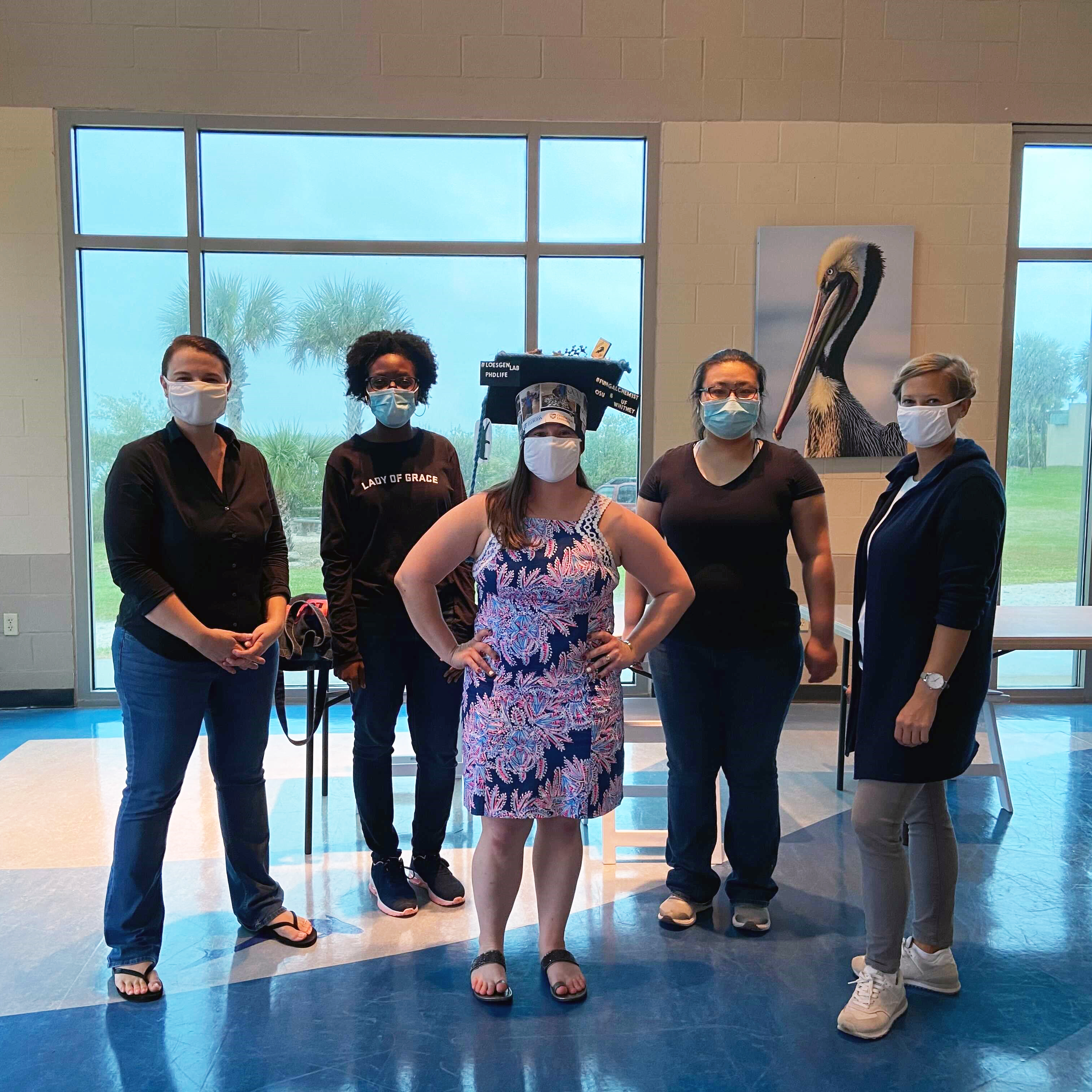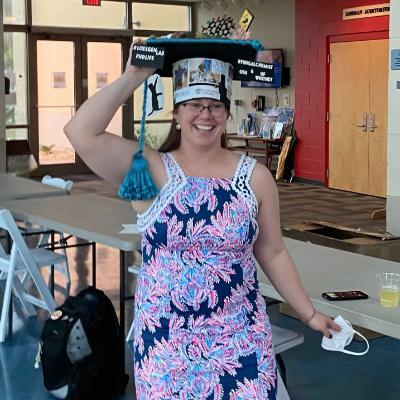 The Whitney Laboratory for Marine Bioscience
The Whitney Laboratory for Marine Bioscience

On November 5th, Paige E. Mandelare, a graduate student advised by Sandra Loesgen, Associate Professor of Chemistry, gave her Ph.D. defense seminar entitled “Chemical Signaling in Marine Fungal and Coral Systems” and successfully earned her doctorate degree.
Paige’s dissertation projects are twofold and covered the discovery of new bioactive metabolites from marine microorganisms for drug discovery purposes as well as characterizing the chemical recognition that governs coral-algae symbiosis, the foundation of healthy coral reefs.
Chemical signaling is a fundamental aspect of life and, newly discovered chemical entities are inspiring the development of clinically used drugs, improving human health as antibiotics, anti-virals, and cancer treatments.
In her work, Paige utilized metabolite isolation and structure elucidation tools including state-of-the-art metabolomics to discover new metaboled, named allianthrones, from a marine derived fungus Aspergillus alliaceus. The allianthrones exhibited unique cancer cell selectivity in the National Cancer Institute’s 60 cell line panel and warranted further testing in triple negative breast cancer (TNBC) and melanoma cell lines, resulting in low micromolar inhibitory concentrations. In total, 18 fungal metabolites were isolated and characterized, 10 of them new.
In collaboration with the laboratory of Virginia Weis at Oregon State University, Paige was instrumental to isolate and identify surface N-glycans from algal strains symbionts of the sea anemone Aiptasia palladia. Surface glycans were harvested and analyzed using LC-MS/MS and lectin binding profiles. Next, effects of removal or manipulation of certain surface glycans were tested in host colonization assays in vivo. This represents the first molecular analysis of the surface N-glycan content of Breviolum minutum, an essential symbiont in healthy coral reefs.
These are tremendous achievements in the area of marine derived drug discovery and chemical signaling in coral symbiosis! The research has been published in three scientific publications with two more to come. After her successful defense, Paige was presented with a ‘doctoral hat’ made by all Loesgen Lab members to honor and celebrate her work. Congratulations Paige!
